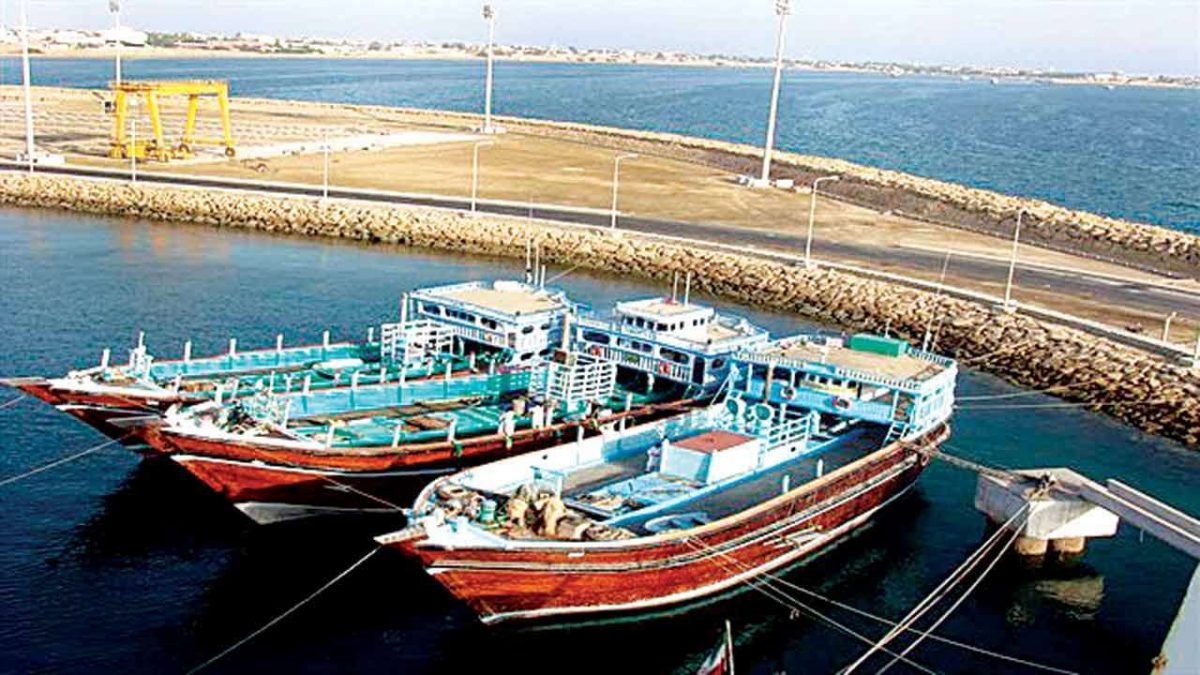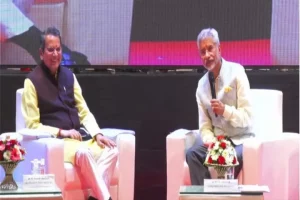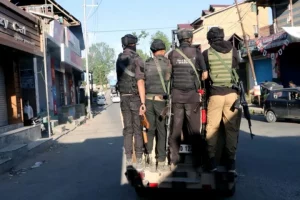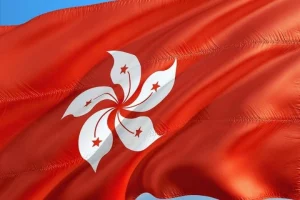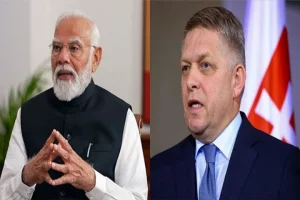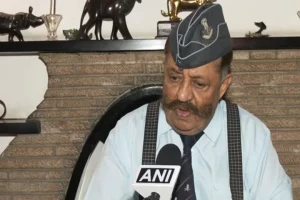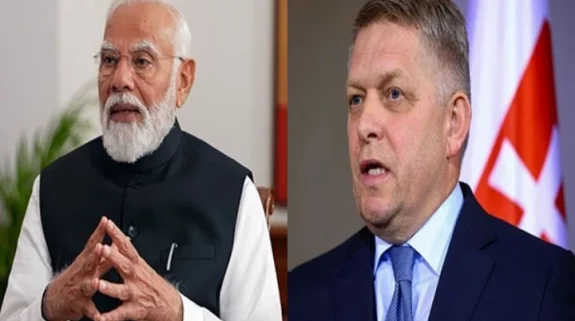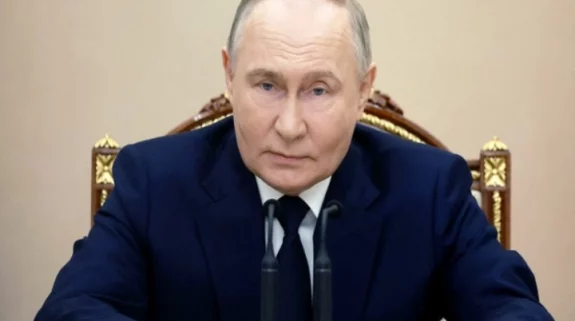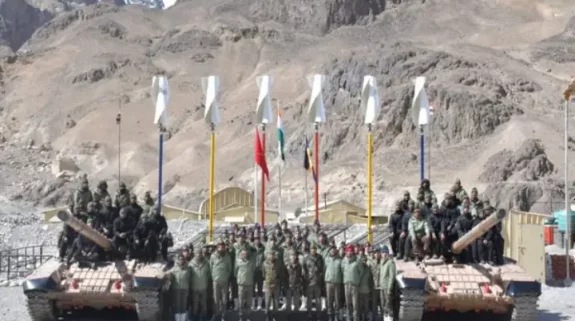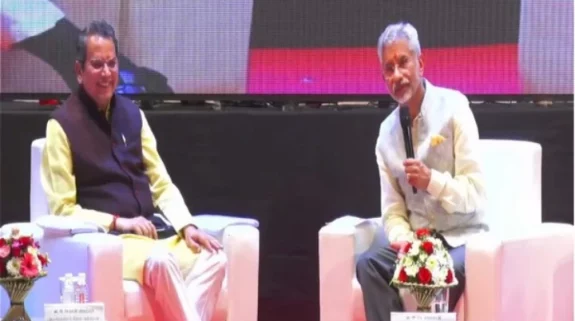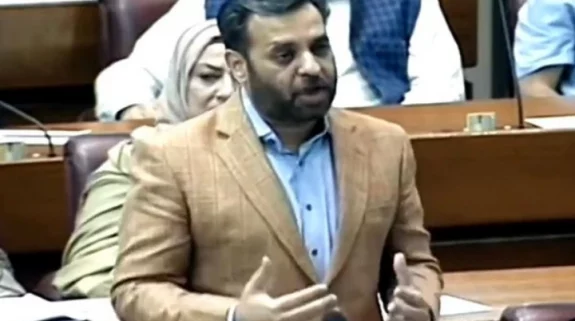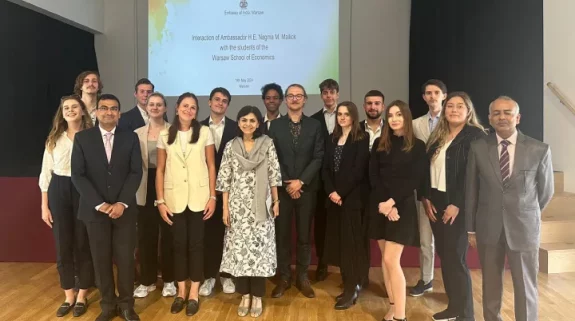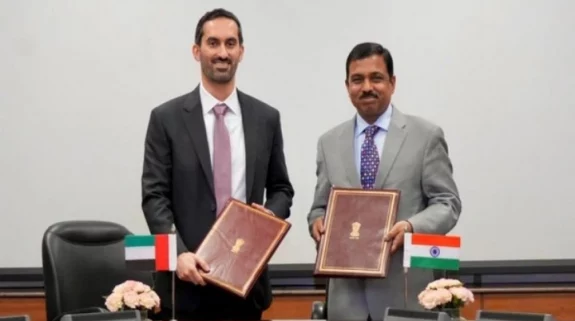India and Iran’s tie up to reach out to landlocked Afghanistan and Central Asia is quietly advancing with Chabahar port beginning to emerge a global trade hub in the Indian Ocean.
Last week two Mobile Harbour Cranes (MHC), out of the six that India has pledged, arrived at the port. The consignment worth 8.5 million dollars had started from Italy's Marghera port. The cranes will allow the India Ports Global Limited (IPGL) to provide services for container, bulk and general cargo at the Shahid Beheshti terminal of Chabahar.
Chabahar located in south-eastern Iran, on the Gulf of Oman is Iran's sole oceanic port. It consists of two separate ports named Shahid Kalantari and Shahid Beheshti, each of which has five berths.
India and Iran first signed on an agreement to further develop Shahid Beheshti port in 2003, but progress was tardy on account of US sanctions against Iran. In May 2016, India and Iran signed an agreement, assigning New Delhi the task of refurbishing one of the berths at Shahid Beheshti port. Under the deal, India agreed to reconstruct a 600-meter-long container handling facility at the port.
For India, Chabahar has enormous strategic importance. In New Delhi’s larger geopolitical calculus, landlocked Central Asia and Afghanistan’s reliance on rival Pakistani ports, especially when backed by China, should be minimised. Consequently, Chabahar, a short distance from the China developed Pakistani port of Gwadar, offers Kabul and the Central Asian Republics, an option to reduce their dependence on Karachi and Gwadar, for their international trade.
India, Iran and Afghanistan have already signed a memorandum of understanding (MoU) focusing on the Chabahar–Hajigak corridor. The idea is to tap iron ore from Hajigak mines in Afghanistan, process it, and bring it into the international market via the Chabahar port. Seven Indian iron and ore companies have up signed for the Hajigak iron and steel mining project in Central Afghanistan. India also plans to develop the Chabahar-Hajigaj railway in the future. A Chabahar Special Economic Zone is also on the anvil, where India and Iran are expected to invest $8 billion. Earlier, India had constructed the Zaranj-Delaram road in Afghanistan, thereby connecting it to the Chabahar port.
Following the MoU with Afghanistan, Iran, India and Uzbekistan have also signed a Mansukh Mandaviya, Minister of Ports, Shipping and Waterways said following the delivery of the cranes that the Chabahar Port is a strategic port for India. "The delivery of consignment of heavy equipment, including cranes shows India’s commitment to the strategic connectivity of Chabahar port project that will provide access to markets in Central Asia. Development of Chabahar port is the anchor for the expansion of economic and mutual relations between India and Iran and it will give a further boost to the maritime trade between both the countries," he said in a statement.
Iranian newspaper, Tehran Times quoted Behrouz Aghaei, the Director General of Sistan-Baluchestan Province’s, Ports and Maritime Department, as saying that the shipment of the cranes marks the “activation of the contract between the Ports and Maritime Organization (PMO) and the Indian side.”
Analysts say that the arrival of the cranes could mark the beginning of fast-tracking India-Iran collaboration in Chabahar, which had been constrained because of the US sanctions regime under the Trump administration. But with Democratic party, which had backed the Iran-nuclear deal now back in the US administration under President-elect Joe Biden, back in power, there is anticipation in India that Washington may no longer frown on India’s renewed engagement with Tehran.
Biden has already declared the appointment of Wendy Sherman as his deputy secretary of state. This is significant as Sherman was the lead negotiator of the Iran nuclear deal under the Obama administration—a legacy that the Biden administration maybe inclined to salvage.
In September, Defence Minister Rajnath Singh and External Affairs Minister S Jaishankar had visited Tehran to discuss trade, regional issues and strengthen relations. The discussions also included Chabahar port and developing related infrastructure projects as China was making efforts to entrench itself in the Indian Ocean region.






